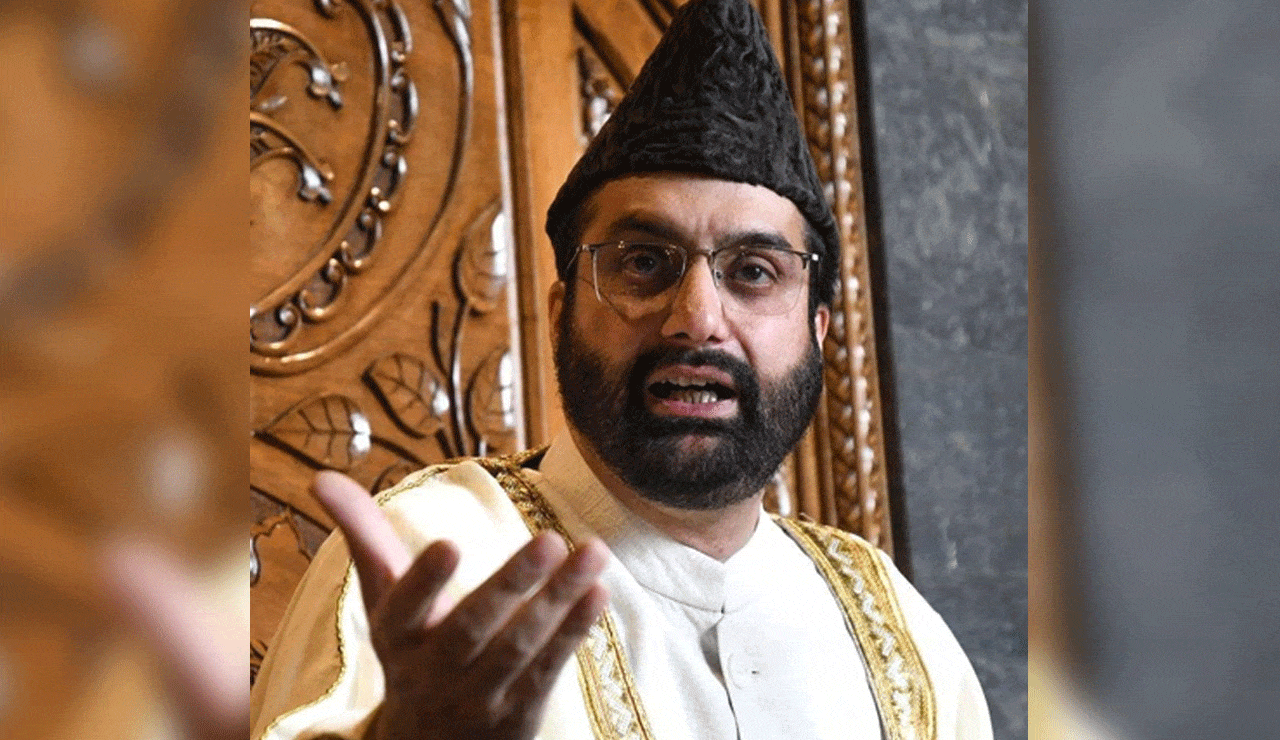Mirwaiz Umar Farooq Says Not Allowed to Offer Prayers at Eidgah, Questions House Arrest
Senior religious and political leader Mirwaiz Umar Farooq has alleged that authorities placed him under house arrest and prevented congregational Eid prayers at Jama Masjid and Eidgah in Jammu and Kashmir’s Srinagar city.

Srinagar: Senior religious and political leader Mirwaiz Umar Farooq has alleged that authorities placed him under house arrest and prevented congregational Eid prayers at Jama Masjid and Eidgah in Jammu and Kashmir’s Srinagar city.
Table of Contents
Mirwaiz Condemns the Restrictions
Expressing his disappointment, Mirwaiz Umar Farooq took to X (formerly Twitter) to condemn the decision.
Also Read: Director Sanoj Mishra, Who Gave Viral Girl Monalisa a Break, Arrested in Rape Case
“I am deeply pained and strongly condemn the authorities’ decision to once again deny the Muslims of Kashmir the basic right to offer Eid prayers at Eidgah and Jama Masjid, which have been closed down, and I have been detained at home.”
Questions Raised on Claims of Normalcy
Mirwaiz further questioned the government’s claims of normalcy in the region.
“Even at the peak of militancy during the 1990s, Eid prayers were offered at Eidgah. So now, when huge claims of ‘normalcy’ are made every day by the authorities, why are Muslims being kept away from their religious places and practices? What is the agenda? Is the collective identity of Kashmiri Muslims a threat to the rulers?”
Places of Worship Belong to the People
He emphasized that Eidgah and Jama Masjid belong to the people of Kashmir and barring them from these sacred spaces even on Eid reflects “an oppressive and authoritarian approach.”
MHA Bans Awami Action Committee
The Ministry of Home Affairs (MHA) recently banned the Awami Action Committee (AAC), which is led by Mirwaiz Umar Farooq, for a period of five years.
According to the MHA order, the AAC was declared an anti-national organization for allegedly inciting youth toward stone-pelting and violence.
Background of the AAC
The Awami Action Committee was founded in 1963 by Mirwaiz Maulana Mohammad Farooq, father of Mirwaiz Umar Farooq. After his assassination in 1990 at his residence in Nigeen, his son took over the leadership.
Ban on Ittehadul Muslimeen
Alongside the AAC, the government also banned Ittehadul Muslimeen, a Shia Muslim organization headed by Maulvi Masroor Abbas Ansari. The group, previously led by Maulvi Abbas Ansari, was part of the separatist All Parties Hurriyat Conference, which he chaired for three years.
Ongoing Restrictions in Kashmir
The restrictions imposed on Mirwaiz Umar Farooq and the ban on his organization have reignited concerns over religious and political freedom in Kashmir. While authorities maintain these actions are necessary for maintaining law and order, critics argue that such measures further alienate the people of the region.
